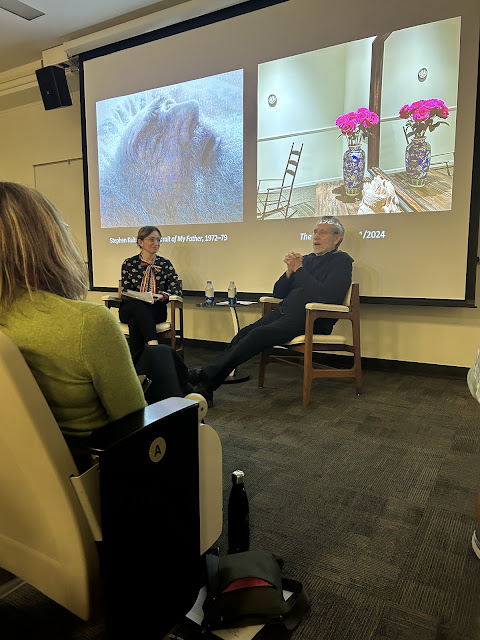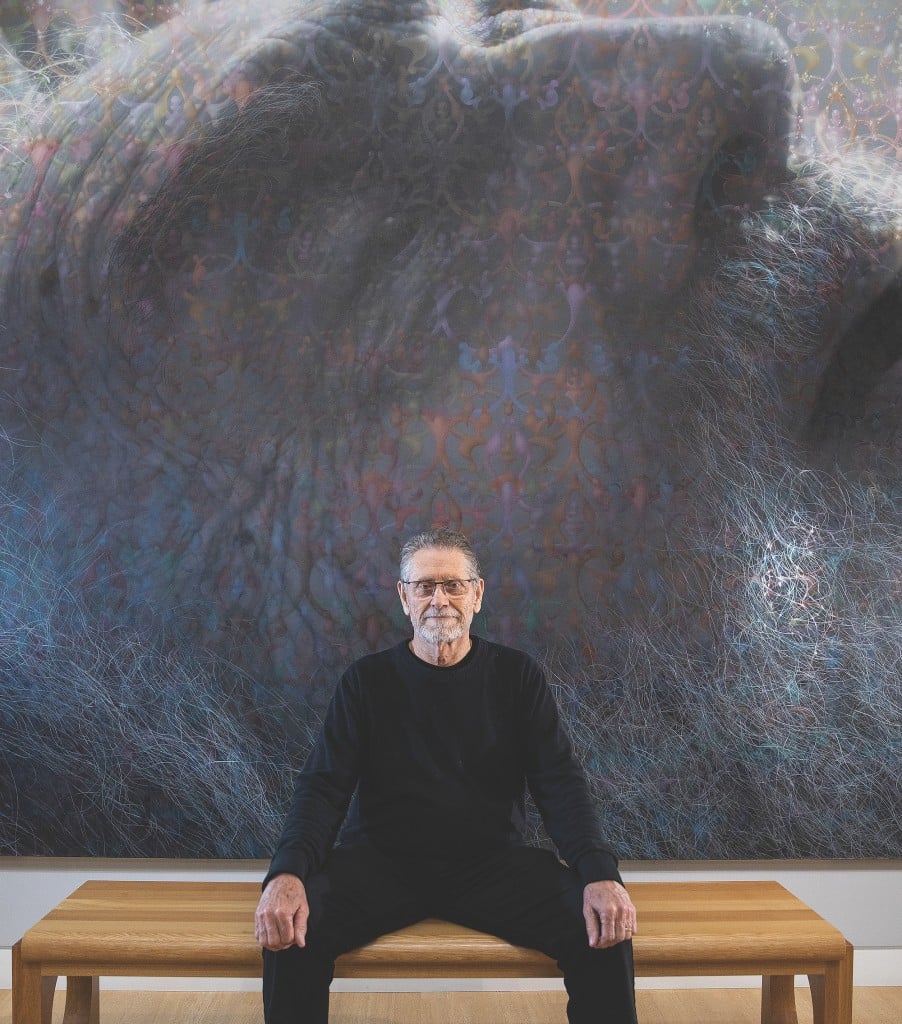Conversations with Stephen Kaltenbach
Stephen Kaltenbach – Out of Place, Out of Time ft. Francesca Wilmot, curator at the Crocker Art Museum.
This “artist talk” turned out to be very exciting. I had
seen Portrait of My Father, 1972-1979, at the Crocker Art Museum before, but I did
not remember who the painter was, so when this talk happened it was a surprise
to recognize the painting and put a name and face to the painting. It was a
massive painting, depicting a realistic older man, but painted with short
strokes, lines, and a subdued but ethereal color palette. Kaltenbach had
explained this was some of his early work, and considers his work since the
late 1960’s as “out of time.”
Kaltenbach explained this concept a little further. He
explained that his work was not related to time or place, likening it to his
time capsules, which were items buried in one decade to be opened several
decades later. I understood this as the capsule ceasing to exist in the time from
which it was placed and remaining in a kind of limbo until it was opened again.
He also explained that by making his work “timeless,” one could “see the future
through the past.” By keeping his work
out of time and place, he confronts his own mortality through his work.
Kaltenbach talked about his process and influences at
various times in the interview. One that stuck out to me was his discussion
about his visions. He spoke candidly about speaking with his father through one
of these visions after his death. He recounted how he saw his father as young, healthy, and joyful, a stark contrast to his memory of his father's constant ailments during the last years of his life. He said sometimes he and his family would slip
into these otherworldly experiences. From there, he sees beauty where time has
no place and translates that to his work. It was a very moving discussion, and I had even teared up when Kaltenbach began to cry when he talked about his father. I glanced around in that moment, slightly embarrassed to have lost my composure so easily, but others were similarly effected by his honest and heartfelt words.
Another work that was influenced by one of these visions was The Window, originally done in 1981 and recreated in 2024 (it is the photograph on the right of my first picture, next to Portrait of My Father). He said the vision occurred when he was visiting a friend on the coast. In this vision, he was in a room, and when he turned, there was a window/mirror in the wall. It appeared to be a mirror, but as he neared, he realized he was not included in the reflection despite the "mirror" reflecting everything else in the room.
These accounts of visions were incredibly fascinating, and honestly, I felt a strange mixture of curiosity and envy. I was reminded a bit of lucid dreaming, which has been something I have tried to do for years since I learned of it, to no avail. It sounds like such a unique experience to see something so real and vivid, as if the scene before you existed in reality, but being fully aware that you were rooted elsewhere. Kaltenbach mentioned an affinity for the Greek concept of time and felt deeply about these visions. I can see how the theme of being out of time relates to these experiences. It sounds like being plucked from one reality to another, where time isn't relevant and is bereft of the rules that govern reality.



.JPG)
Comments
Post a Comment